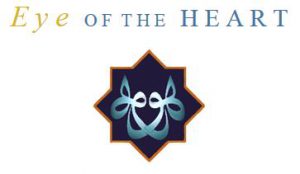
THRESHOLD SOCIETY NEWSLETTER ~ SEP 2020
***
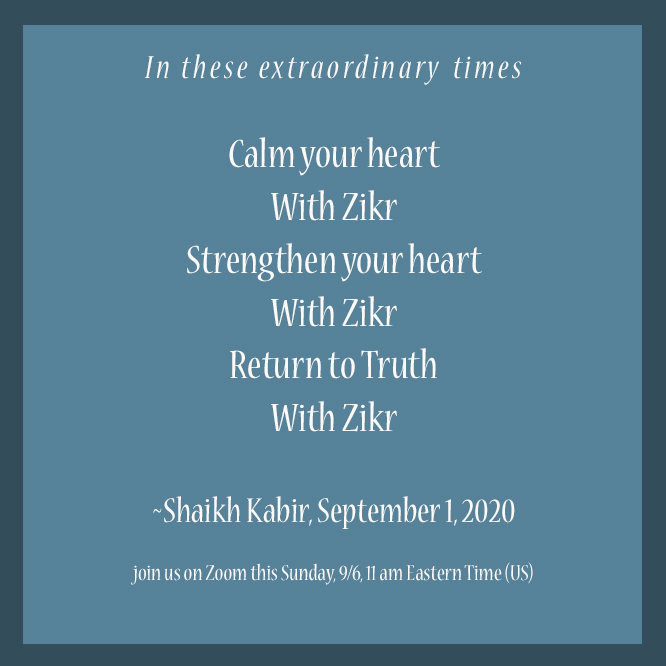
Join us on Zoom: https://zoom.us/j/435138208
***
O Truth, O Love!
~ Camille Helminski, Excerpt from Dear Body, from the “Songs of the Soul” series
Dear body,
this heart
is listening,
beating strangely
during these strange times.
How do we restore
Your blessed order,
O Allah,
the purpose
for which we were created,
the kernel of the kernel
opened
to bear good fruit
in the best of times?
You have sung
so many love songs;
why have we not heard?
You have bent over backwards
to support our bones,
our feet,
upon this sacred earth.
Why do we not pay attention?
Why do we not learn?
Help us to see
more clearly,
help us to hear
Your Words!
Spoken by every tree,
every bird,
every soul
who calls out
in the night
distraught
for lack of love—
teach us
to recognize,
how to respond,
how to dress our days
in the glory
of Your Promise,
in the Compassion
of Your Knowing,
in the Generosity
of Your Wisdom and Justice,
in the subtlety
of Your Tender Care—
“I am with you!”[1]
O Love,
bring us Home now,
Here;
resurrect us wholly in Truth,
that this world and these hearts might shine again
with the Reality of Your Creating!
Ya Nur, Ya Khaliq, Ya Baqi!
Ya Haqq, Ya Wadud![2]
Hasn’t the time come for the faithful
that their hearts in all humility
should engage in the remembrance of God
and of the Truth which has been revealed?
[Quran, Surah al Hadid 57:16]
***
September Theme
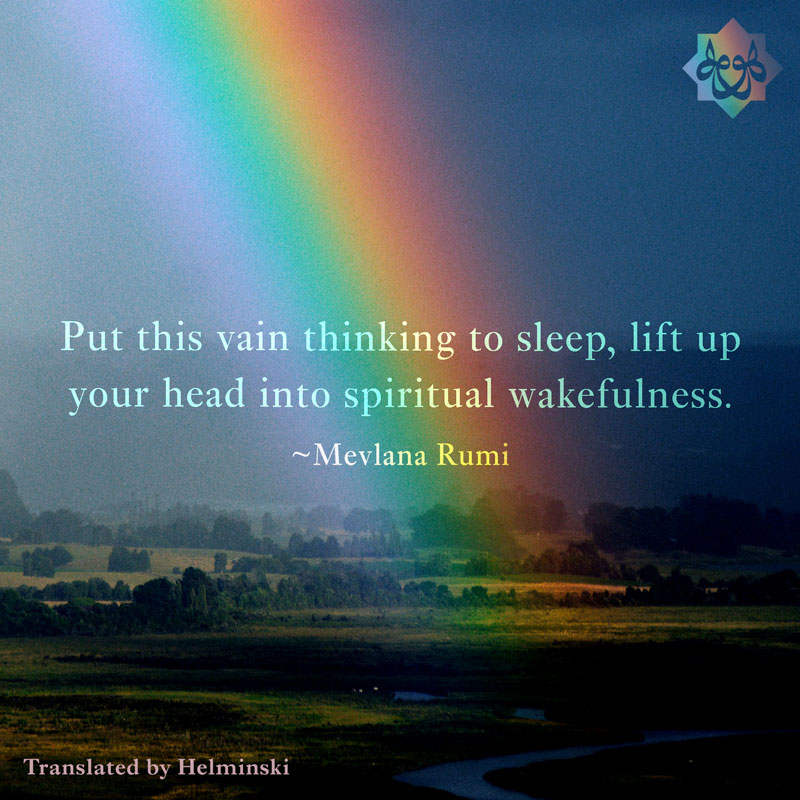
Put this vain thinking to sleep, lift up your head into spiritual wakefulness. ~Mevlana
We welcome your reflections on this theme.
***
Sema at Galata Mevlevihane
September 7th, 2019: Sema ceremony at Galata Mevlevihane (Istanbul) with Shaikh Huseyin Erek, Shaikh Kabir Helminski, and Neyzen Salih Bilgin, Music Director.
***
Reflection on August’s theme: The more the mind and heart become still, the more we can trust in God. ~ Shaikh Kabir Helminski

Since in order to speak, one must first listen,
learn to speak by listening.[Rumi, Mathnawi I: 1627]
It is possible to restructure the brain so that there is more conscious awareness. This has been called polishing the mirror, awakening from sleep, cultivating the witness, and developing the real “I.” Through changing the energy level of the brain, we can activate a different kind of brain function—a finer attention that stands above routine, habitual thought, feeling, and behavior.
This presence—this conscious, listening mind—not only opens a window on our experience, it also connects us to the source of will. Attention can be called the first act of the will. It establishes the relationship between observer and experience, raising the level of experience and transforming a living automaton into a sensitive agent. It is this sensitivity that makes the difference between being nominally awake and experiencing life as the gift it is.
Almost everyone has some area of his or her life in which some sensitive awareness is developed. Some people find it in painting, some in playing softball, others in meeting people, and still others in religious worship. But few people manage to sustain the fresh edge of sensitive awareness through the circumstances of their daily life. Instead they settle for routines and habits.
A change in energy level occurs when we move from passive attention to active attention. When our attention is passive, we are reacting to random stimuli from the environment and from within our own psychology. We are weakened and fragmented by the various demands that occupy our attention.
An active attention, on the other hand, allows us to be receptive and whole by connecting us to a willing “I,” a more unified and harmonized presence. This active attention, which originates in the will, creates more and more energy of its own kind and brings increasing freedom from the processes within the mind. It allows us to listen in on our thoughts more clearly and to feel our feelings. It is the beginning of knowing ourselves.
Through this process we are freed from the servitude to habitual thoughts and feelings. Many unconscious motivators—such as envy, resentment, and fear—lose some of their power over us. We are taken out of the darkness and brought into the light of awareness where emotional contradictions can be seen and resolved, where self-defeating thought patterns can be understood and worked with.
This listening to our inner talking should first be practiced within the context of meditation, where it can be experienced under relatively controlled conditions. Listening to our thoughts is different from commenting on them. Conscious listening is possible only in a heightened awareness. The inner commentaries with which we are filled are an example of thought judging thought, one part of the intellectual mind commenting on another. This occurs normally in our everyday experience and is simply the result of our mind being made up of many separate parts, each having its opinions and judgments of the others. Conscious listening takes place on a different level, a viewpoint from which thinking, feeling, and behaving can be observed. If we practice this listening when we are quiet and still, focused only on the task of listening, we will see how we move from being identified with the process of thinking to being aware and relatively free of thought. Occasionally we have a moment of observing the process of thought itself.
Once we have practiced it enough to know it, we can attempt to introduce more of this listening into the midst of life. Occasionally we will catch ourselves at the end of a process of thinking and will awaken from it in much the same way as we awaken from a dream. So much of our waking time is spent unconsciously identified with the process of thinking, out of touch with the present moment and situation, living in our heads.
[Excerpt from Living Presence, Chapter 15, ‘Listening Within’ by Shaikh Kabir Helminski]
***
Hagia Sophia: Holy Wisdom is Feminine Wisdom
~ Zilka Spahic Siljak
Zilka Spahic Siljak, formerly professor at Stanford and Harvard, is author of Shining Humanity: Life Stories of Women in Bosnia and Herzegovina. She is a supporter of the Threshold Society and was responsible, with her daughter Djelila, for the translation and publication of Zivi Prisutno (Living Presence) into the Bosnian language. Zilka shares some reflections about Hagia Sophia being turned into a mosque.
~~~
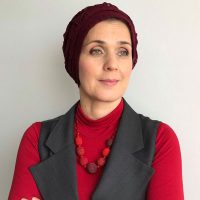 Reading reflections, comments, critiques, and arguments for and against turning Hagia Sophia (Turkish: Ayasofya) into a mosque, I asked myself: where are the sacredness and wisdom in this act?. The very name of this monumental building in Greek is sofia [Σοφία]. Σοφία means wisdom, but not any kind of wisdom: it is holy wisdom, divine wisdom, that is, the power to confirm the truth with wise arguments that we intuitively reached with gnosis—a deep knowledge of the essence of things. In Gnostic traditions, it is referred to as sacred knowledge, revelation, and ultimately the soul of the world in its feminine aspect. Although Gnosticism is linked to early Christianity, it is older, and as Gnostic scholars like to say, it is much more than religion: it is a way of life and a way of being.
Reading reflections, comments, critiques, and arguments for and against turning Hagia Sophia (Turkish: Ayasofya) into a mosque, I asked myself: where are the sacredness and wisdom in this act?. The very name of this monumental building in Greek is sofia [Σοφία]. Σοφία means wisdom, but not any kind of wisdom: it is holy wisdom, divine wisdom, that is, the power to confirm the truth with wise arguments that we intuitively reached with gnosis—a deep knowledge of the essence of things. In Gnostic traditions, it is referred to as sacred knowledge, revelation, and ultimately the soul of the world in its feminine aspect. Although Gnosticism is linked to early Christianity, it is older, and as Gnostic scholars like to say, it is much more than religion: it is a way of life and a way of being.
The concept of sophia is found in all Eastern religious traditions. In Hinduism, it is shakti (sanskrit: personification of female wisdom), in Buddhism, it is the compassionate bodhisattva, in Christianity, it is Mother Mary theotokos, while in Jungian psychology, sophia is defined as the unifying power of masculine and feminine archetypes (animus and anima), as well as of the lower self with the higher spiritual self, gnosis. The key characteristic of sophia in Gnosticism is that it is able to grasp the paradox that two different views can be both true.
If sophia is holy wisdom, creativity, intelligence, divine inspiration and the soul of the world, how can one understand the act of turning Hagia Sophia into a mosque as an act of wisdom? How can it be wise to make a gesture that sticks out like a sore thumb against the background of Turkey’s secular state in the eyes of neighboring countries, especially as some Christians feel like the historical context of what was once their church is being erased? How can something that is someone else’s haqq (right) be sacred if it is treated as a conquest? The Prophet Muhammad (peace be upon him) guaranteed the lives, honor, property and churches of Christians in his letter to the monks of the monastery of St. Catherine in Sinai. His gesture should be a model to Muslims and guidance for navigating these types of situations until the end of times. The letter ends with the key message:
No compulsion is to be on them. Neither are their judges to be removed from their jobs nor their monks from their monasteries. No one is to destroy a house of their religion, to damage it, or to carry anything from it to the Muslims’ houses. Should anyone take any of these, he would spoil God’s covenant and disobey His Prophet. Verily, they are my allies and have my secure charter against all that they hate. No one is to force them to travel or to oblige them to fight. The Muslims are to fight for them… Their churches are to be respected. They are neither to be prevented from repairing them nor the sacredness of their covenants. No one of the nation (Muslims) is to disobey the covenant till the Last Day (end of the world). [Cyberistan]
The spirit of this letter rests in the qur’anic message that requires Muslims to communicate with Christians and Jews only kindly:
And do not argue with the followers of earlier revelation otherwise than in a most kindly manner—unless it be such of them as are bent on evildoing—and say: “We believe in that which has been bestowed from on high upon us, as well as that which has been bestowed upon you: for our God and your God is one and the same, and it is unto Him that We [all] surrender ourselves.” (Asad, Muhammad. The Message of the Qur’an, 29:46)
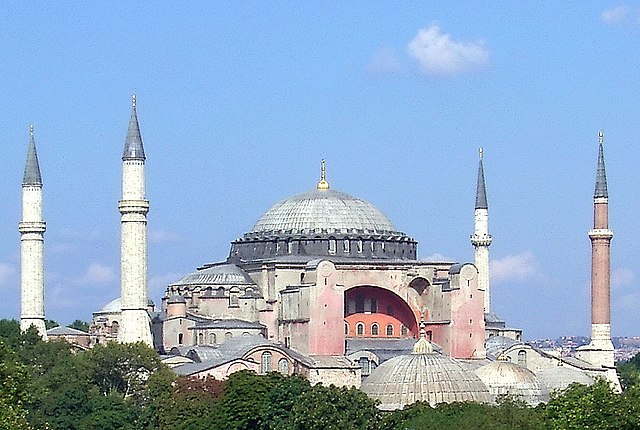
image by Robert Raderschatt
The magnificent Hagia Sophia, built by the Emperor Justinian in the early 6th century, and used as a mosque between 1453 (the year of the Ottoman conquest) and 1934, when it was turned into a museum, only to be officially returned to mosque status by the current Turkish government in 2020, is not the first holy place to have experienced such a fate. In conquering certain territories, Muslims and Christians have both altered the purpose of churches and mosques. It would take us a long time to list such cases throughout Europe, Asia, and Africa, even if we only considered the largest ones, but that is not the intention of this short text.
Arguments that can be heard these days among Muslims go something like: “Yes, they (Christians) also took away Alhambra and they demolished mosques in the Balkans, so now, for example, there is only one mosque in Belgrade, or they demolished hundreds of mosques during the last war (1992-1995) in Bosnia and Herzegovina.” Such arguments cannot be used as an excuse for polarization, isolation, and divisive policies. If we are constantly moving within the circle of violence, appropriation and domination, we will never be able to reach Holy Wisdom and we will never be able to cleanse our memories and history of the time spent in said circle and the resulting resentment.
In my attempt to understand the paradox of one building with the symbolic name of Holy Wisdom (Hagia Sophia) being appropriated and claimed by all (a subset of Muslims perceives it as their legacy [waqf of the Sultan Fatih] and rejoices at the return of its status to the mosque, Christians feel provoked because the church that was once taken away from them has become a mosque again, and secularists understand this act as an attack on the very foundations of secular order), reminded me of a time three women demonstrated the concept of Holy Wisdom.
Ten years ago, I met three female leaders of their respective religious communities who taught me how Holy Wisdom is reflected in practice. I first met Rabbi Miriam Hamrell in Novi Sad, Serbia, when she was a guest speaker in the synagogue at a seminar on Jewish ethics. I went to the synagogue interested in meeting a woman who is a rabbi. I knew that back in 1972, when Sally Priestand was ordained as the first female rabbi, that such a practice existed in the Reform Jewish communities in America, but this was the first time I had an opportunity to meet one of these women. Later during my stay in America, I had the opportunity to visit her synagogue and see the Holy Wisdom demonstrated in the feminine way.
One Saturday in Los Angeles, I attended the Sabbath prayer at the Ahavat Torah synagogue led by Rabbi Miriam. As I sat and enjoyed the prayer and the heavenly singing of her cantor (similar to a muezzin in the Islamic tradition), who was a professional opera singer, someone patted me on the shoulder and said “Salaam alaykum” (peace be upon you). Pleasantly surprised, I turned to see a Muslim woman with a hijab on her head whispering to me: “I come here often to enjoy this wonderful prayer.” When the prayer was over, lunch followed, dominated by large pots of Hungarian traditional goulash soup and stew. Rabbi Miriam very often prepares this food on Saturday for her congregation. She explained to me that her parents had been expelled from Hungary during the Holocaust and that she had learned to cook Hungarian dishes from them. With her sermons and delicious stew, Miriam inspires and feeds her congregants in the synagogue. “When the heart and soul are filled, the stomach should also be fed,” Miriam explained to me smiling.
She waved her hand and invited two women to join us: one was the leader of a Naqshbandi Sufi community, and the other was the pastor of a nearby Protestant church. Miriam said, “My dear Zilka, three of us together lead this house of God.” I stared at her in astonishment and before I could say anything, Miriam went on to explain that her community is small and that they could not afford to buy or rent a building in Los Angeles on their own because real estate is too expensive, so she made an agreement with the women standing next to us that they would jointly rent a building and manage it as follows: on Fridays, it would be a mosque, on Saturdays, it would be a synagogue, and on Sundays, it would be a church. During the rest of the week, it would be used for different educational programs by all three communities. She also clarified that the stage and prayer space are constructed so they could be rearranged easily; this way each community can set up its own scenography and accompanying content as required by Jewish, Christian, and Muslim rituals and prayers.
This, and similar examples of small religious communities that have united for economic reasons and then discovered other benefits of such arrangements, such as learning about other religious traditions, opening dialogue, joint educational and humanitarian actions and nurturing neighborly and friendly ties within local communities, could be a model of Holy Wisdom to address the issues of disenfranchisement and isolation that are prevalent in the modern-day social context.
The three women managed to create a multi-religious model of synagogue-church-mosque that creates a specific synergy of unity in diversity. They can teach us the Holy Wisdom of communion and dialogue; they show us that when we are ready to open our hearts to each other, we can open the cosmic doors that lead us to Grace and Light.
Since this was accomplished by three women, I wonder if the feminine path towards Holy Wisdom could be a model for Hagia Sophia and thus resolve this paradox: could it be a mosque on Fridays, a synagogue on Saturdays, a church on Sundays, and a museum during the week?
Although I am not a proponent of gender essentialism, because women can be warmongers too, I think that the feminine aspect of Holy Wisdom could be a solution for Hagia Sophia, but also for other buildings that conquerors in different parts of the world have turned into objects of their vanity, egocentrism, or national pride—all things we should not turn into idols that take precedence over our humanity, tolerance, and communities.
***
Mevlana’s Birthday
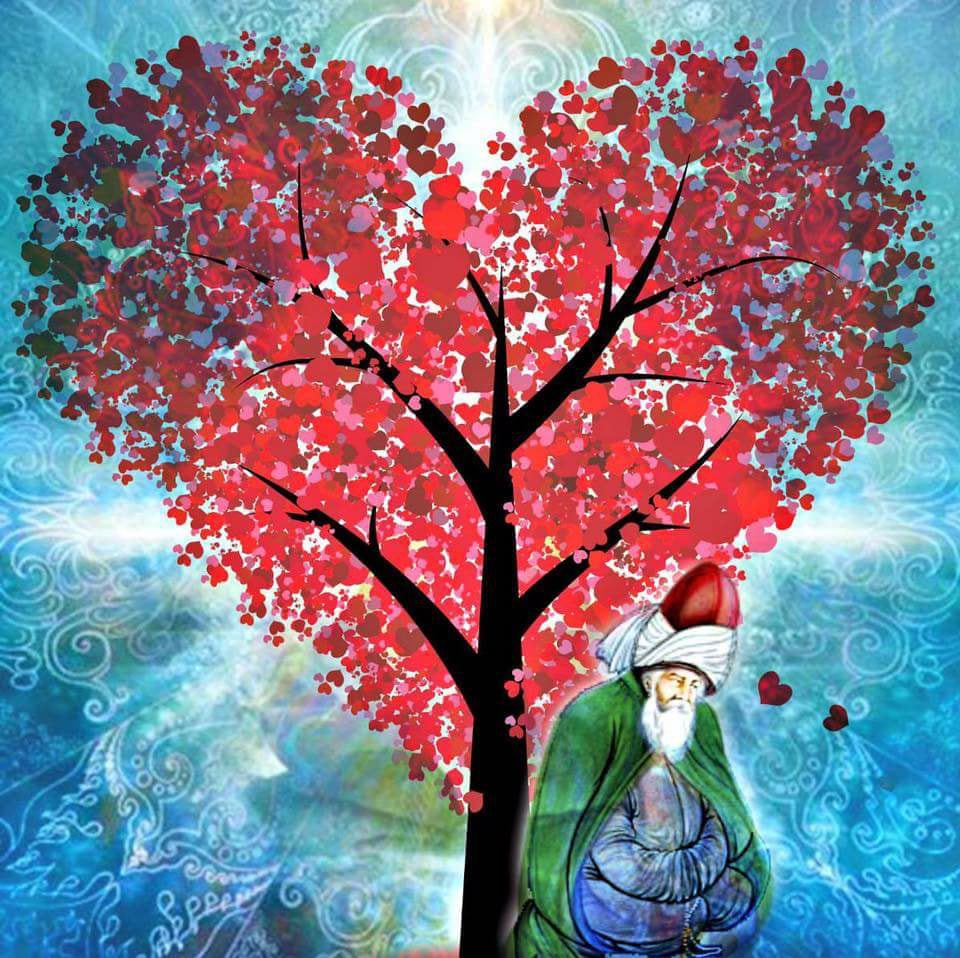
September 30th is Mevlana Rumi’s birthday. May his light be blessed and continue to shine down upon us.
Didn’t I say, don’t sit with sad companions?
Don’t sit with anyone but those whose hearts are glad.
Since you are in the garden, don’t cosy up to thorns.
Sit amidst the roses, jonquils, and jasmine.[Divani Shamsi Tabrizi, Quatrains 1518]
***
Sunday Meditation
1st & 3rd Sunday of the month
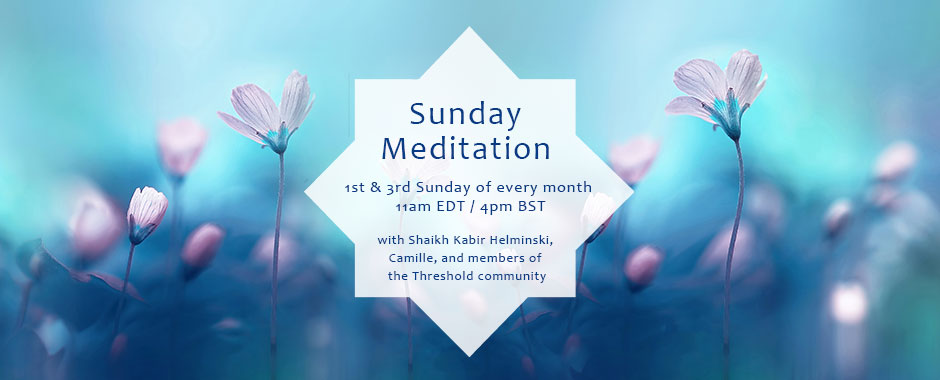
An online meditation with Shaikh Kabir Helminski, Camille, and other members of the Threshold community. Held on the 1st and 3rd Sunday of every month at 11am Eastern Daylight Time (4pm BST).
Allah will not ask from anyone more than He has bestowed. Surely, after hardship Allah will bring ease.
لا يُكلّفُ اللهُ نَفْساً إلَّا مَا آتَاهَا سيجعلُ اللهُ بعد عُسرٍ يُسْراً
[Sūrah aṭ-Ṭalāq 65:7]
How will we endure? We will endure with Rahman, The Divine Compassion & Mercy. We must carry each other. “All believers are brothers/sisters.”
God says, “I am in you. Where are you?” We must find Spirit within ourselves, as Love.
Join us on Zoom: https://zoom.us/j/435138208
[If you have not used Zoom before, please allow time to install and test the software before the meeting time. Click the above link and you will be prompted to download.]
Watch all the previous meditations on our YouTube channel.
***
Quran Instagram
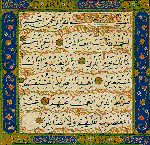 Hamida Battla, a retired physician from Orlando, Florida, and a long time friend of Threshold has started a daily Quran Instagram: @_quran_daily to share her love of the Quran and all the words of wisdom within it. We are so grateful for all her creative inspirations!
Hamida Battla, a retired physician from Orlando, Florida, and a long time friend of Threshold has started a daily Quran Instagram: @_quran_daily to share her love of the Quran and all the words of wisdom within it. We are so grateful for all her creative inspirations!
We invite you to visit @_quran_daily and share with those who would appreciate it.
***
Threshold Books COVID-19 Care Package
(USA shipping only)
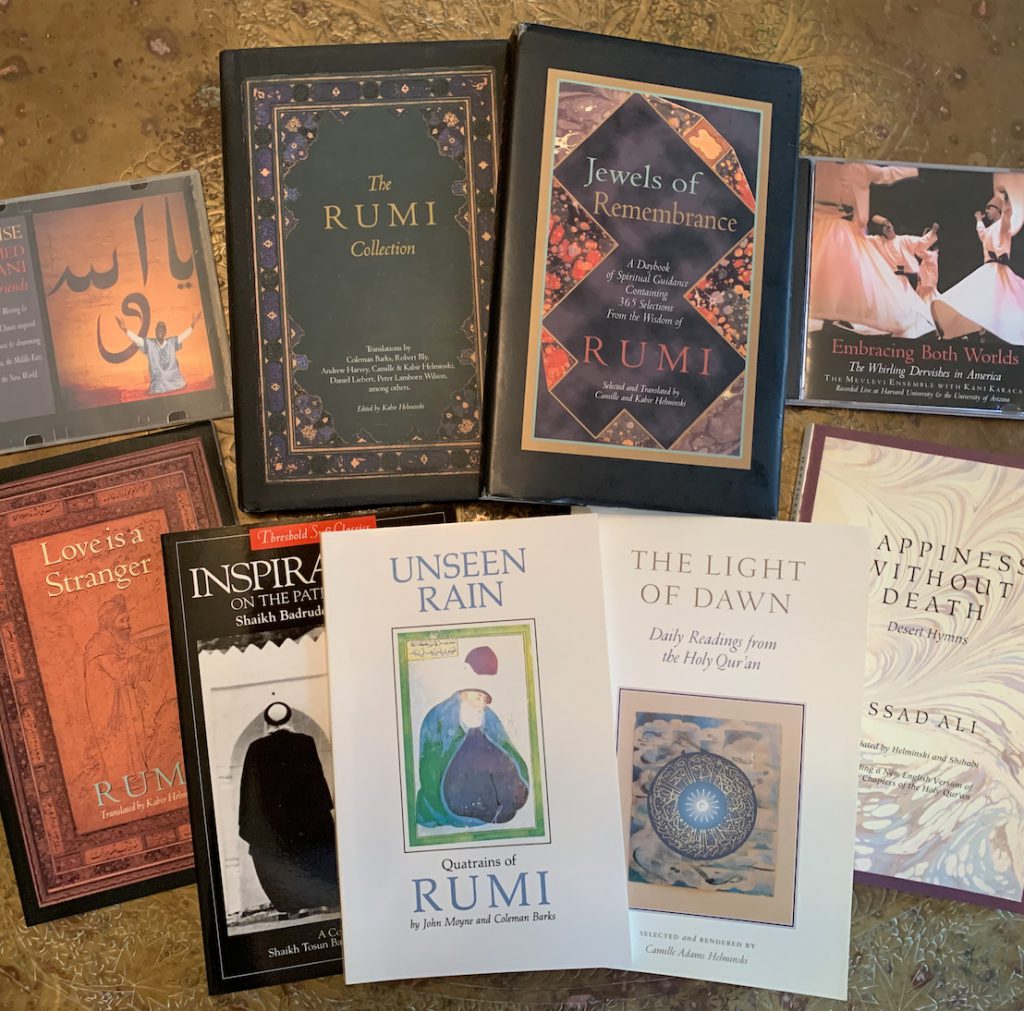
Choose any three items from this list of paperback books and CD’s
and receive all three at the discounted price of $25 including shipping.
Or choose one hardcover book and two of any of the others for $30 including shipping.
Ship to yourself or to cheer a friend.
(See our bookstore pages for item descriptions)
Hardcover books:
Jewels of Remembrance; The Rumi Collection.
Paperback book options:
Unseen Rain; Love Is a Stranger; The Light of Dawn; Inspirations on the Path of Blame; Happiness without Death.
CD’s
“Praise” by Ahmet Tijani and friends; “Embracing Both Worlds” (Music of Sema)
***
HeartSpace Sufi App
Awaken the heart with the wisdom & practice of Sufi spirituality
“This app is filled with gorgeous wird & dhikr. Each one is like a love letter from God directly to my soul. If you find yourself in need of reflection, guidance, or solace, this app will guide you to spiritual healing & regrowth, inshAllah.“
The purpose of HeartSpace is to awaken the consciousness of the heart through the wisdom and practice of Sufi spirituality. It is through the heart that a human being can experience the peace, inner strength and sense of well-being that comes through spiritual practice. True spirituality is based on experience more than beliefs. HeartSpace offers an introduction to traditional principles and practices shared across Sufi lineages. HeartSpace is not meant to replace lived spiritual guidance, but is intended to be an opening or a complement to your spiritual journey. All praise and thanks be to the Sustainer of the Universe.
More details here.
***
The Threshold Society
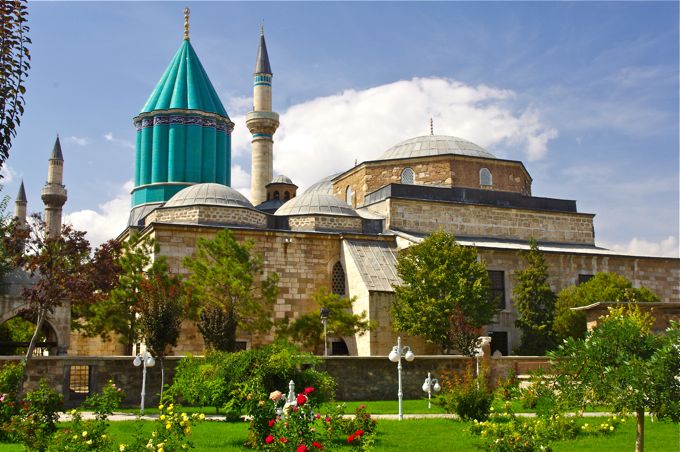 The Threshold Society, rooted within the traditions of Sufism and inspired by the life and work of Mevlâna Jalâluddîn Rumi, is a non-profit educational foundation with the purpose of facilitating the experience of Divine Unity, Love, and Truth in the world. Sufism is a living tradition of human transformation through love and higher consciousness. Our fundamental framework is classical Sufism and the Qur’an as it has been understood over the centuries by the great Sufis. The Society is affiliated with the Mevlevi Order, and offers training programs, seminars and retreats around the world.
The Threshold Society, rooted within the traditions of Sufism and inspired by the life and work of Mevlâna Jalâluddîn Rumi, is a non-profit educational foundation with the purpose of facilitating the experience of Divine Unity, Love, and Truth in the world. Sufism is a living tradition of human transformation through love and higher consciousness. Our fundamental framework is classical Sufism and the Qur’an as it has been understood over the centuries by the great Sufis. The Society is affiliated with the Mevlevi Order, and offers training programs, seminars and retreats around the world.
Each month we intend to highlight an article about our lineage and its principles. This month we offer: The Mevlevi Zhikr
In order to attain the optimum coherence and beauty in our practice, we should be aware of how we perform zhikr in our tradition.
***
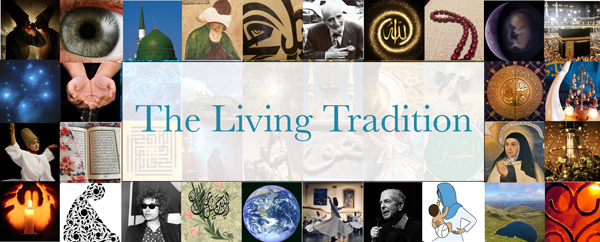
Threshold’s collaborative blog channel The Living Tradition on Patheos.com is reaching new audiences and sharing the experiences of our community in a unique and vibrant way.
Let us know what you think by commenting on the posts — join the discussion at www.patheos.com/blogs/livingtradition and “follow” The Living Tradition.
Recent Articles:
The Spiritual Opportunity of Working on Your Own Racism by Anna Rohleder
What Do We Need a Spiritual Path For? by Kabir Helminski
***
Recent Publications
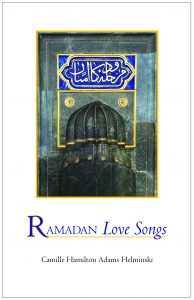
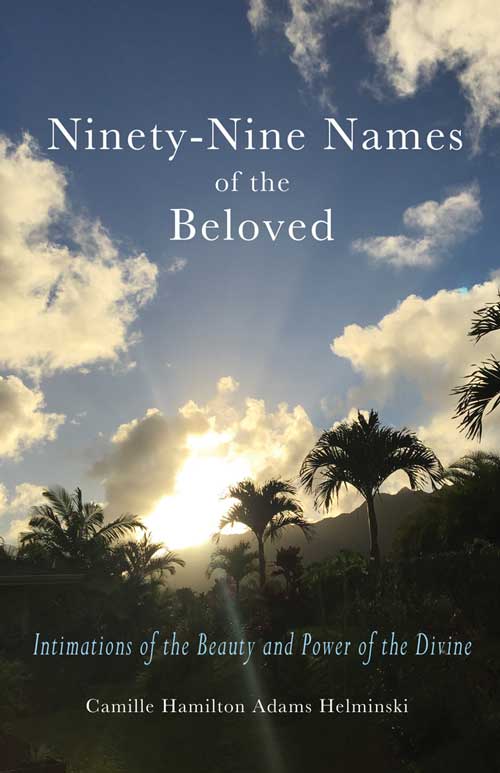
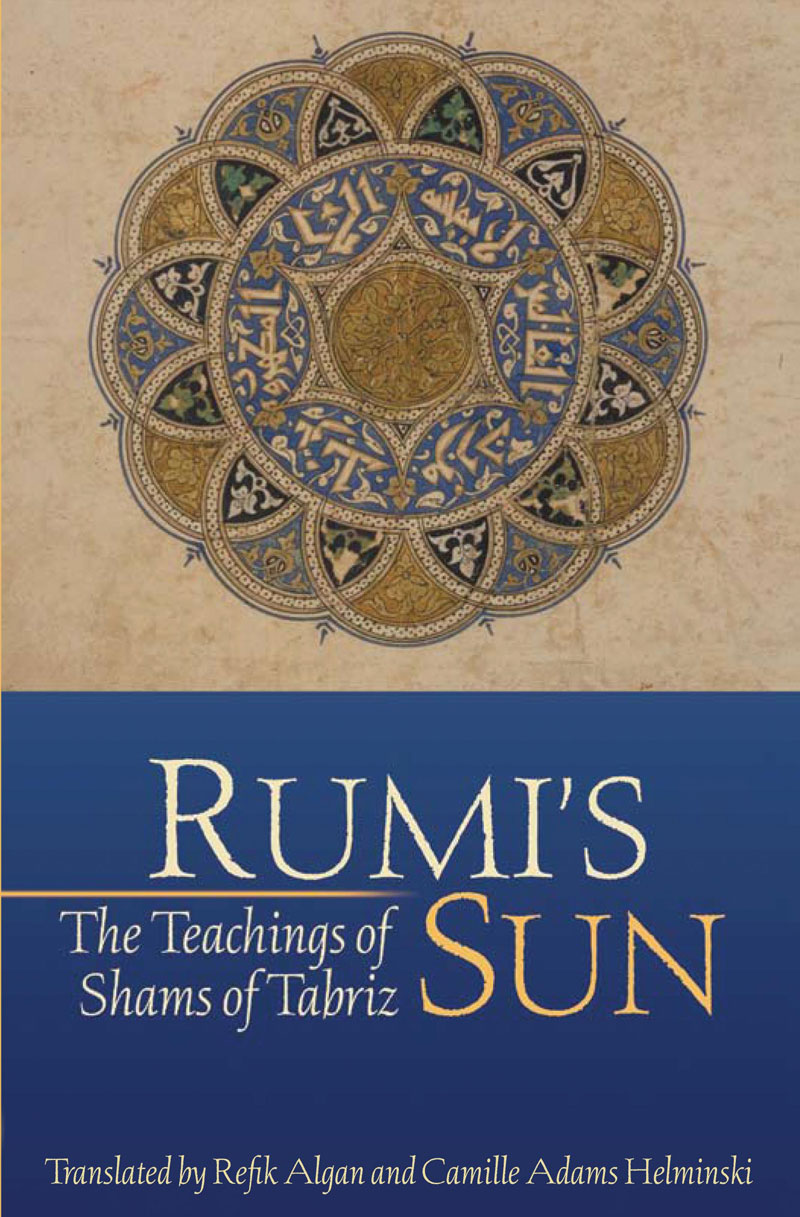
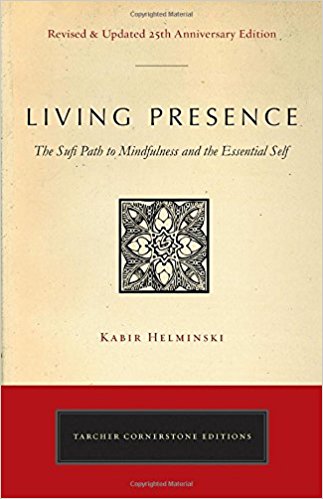
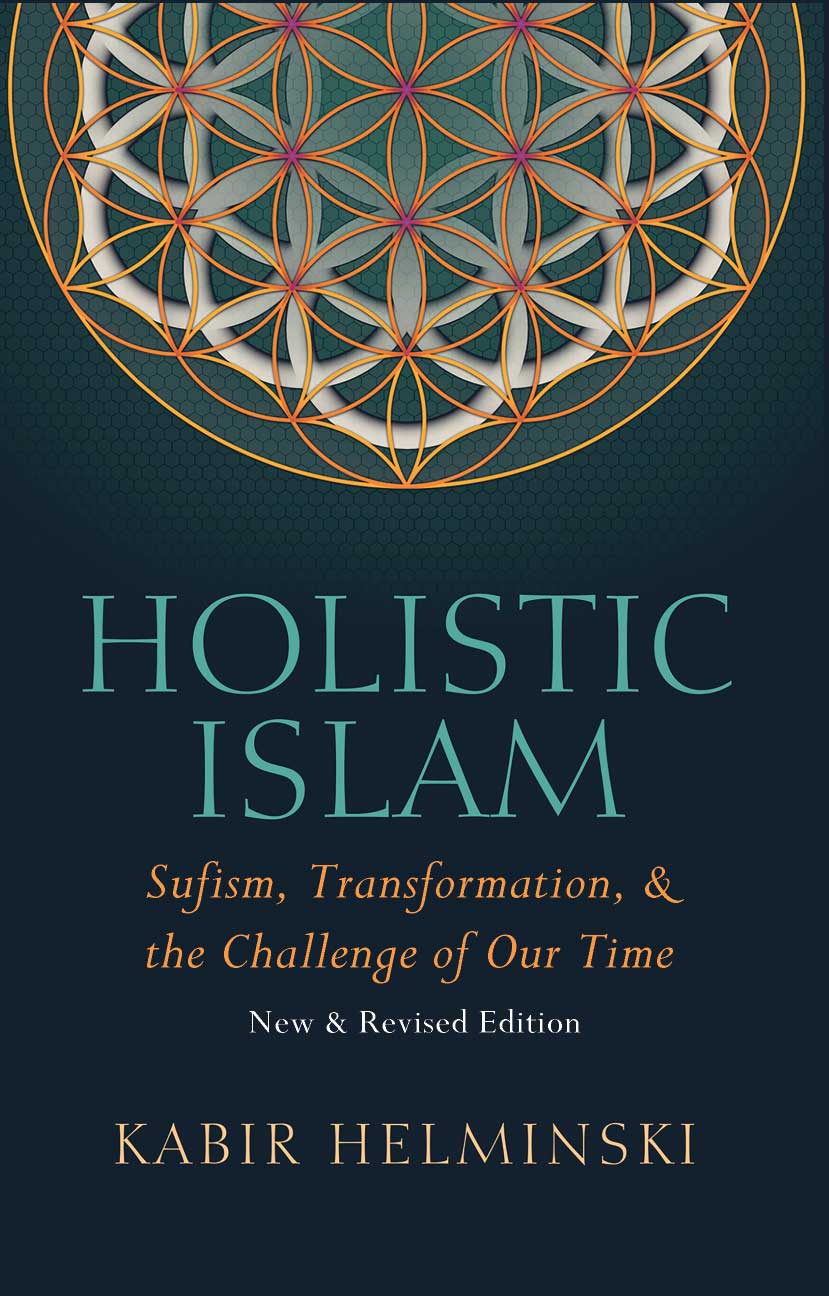
We encourage you to leave reviews on Amazon.
And remember you can donate to Threshold Society through Amazon Smile.
For AmazonSmile US: smile.amazon.com
For AmazonSmile UK: smile.amazon.co.uk
We appreciate your support.
***
Calendar
1st & 3rd Sunday of every month Online Meditations: more details (KC)
Events with Kabir (K) & Camille (C)
***
We’d love to hear from you – get in touch at eyeoftheheart@sufism.org
***
Find out how to support the work of Threshold Society.
***
Receive this newsletter by email: sign-up here.

